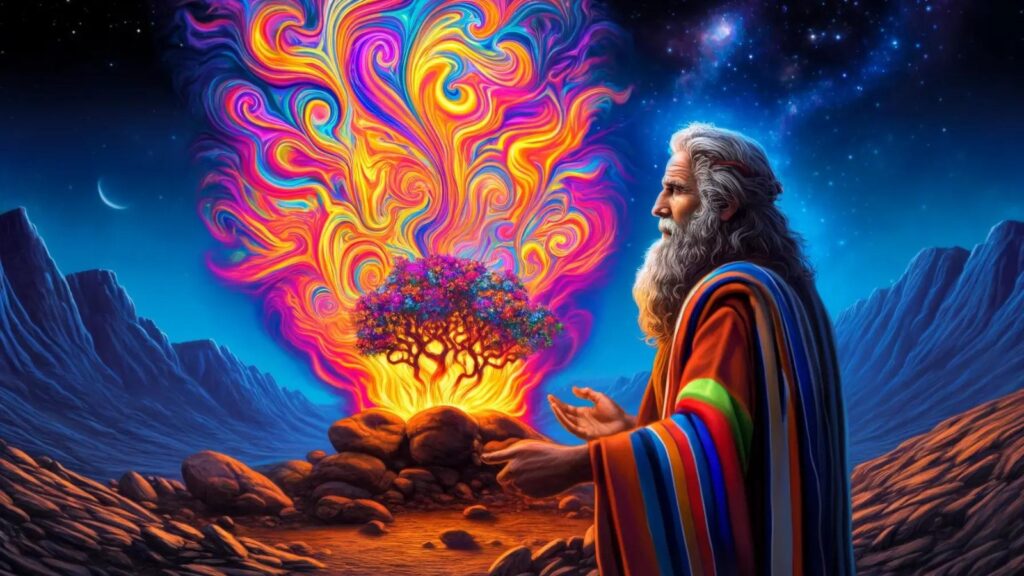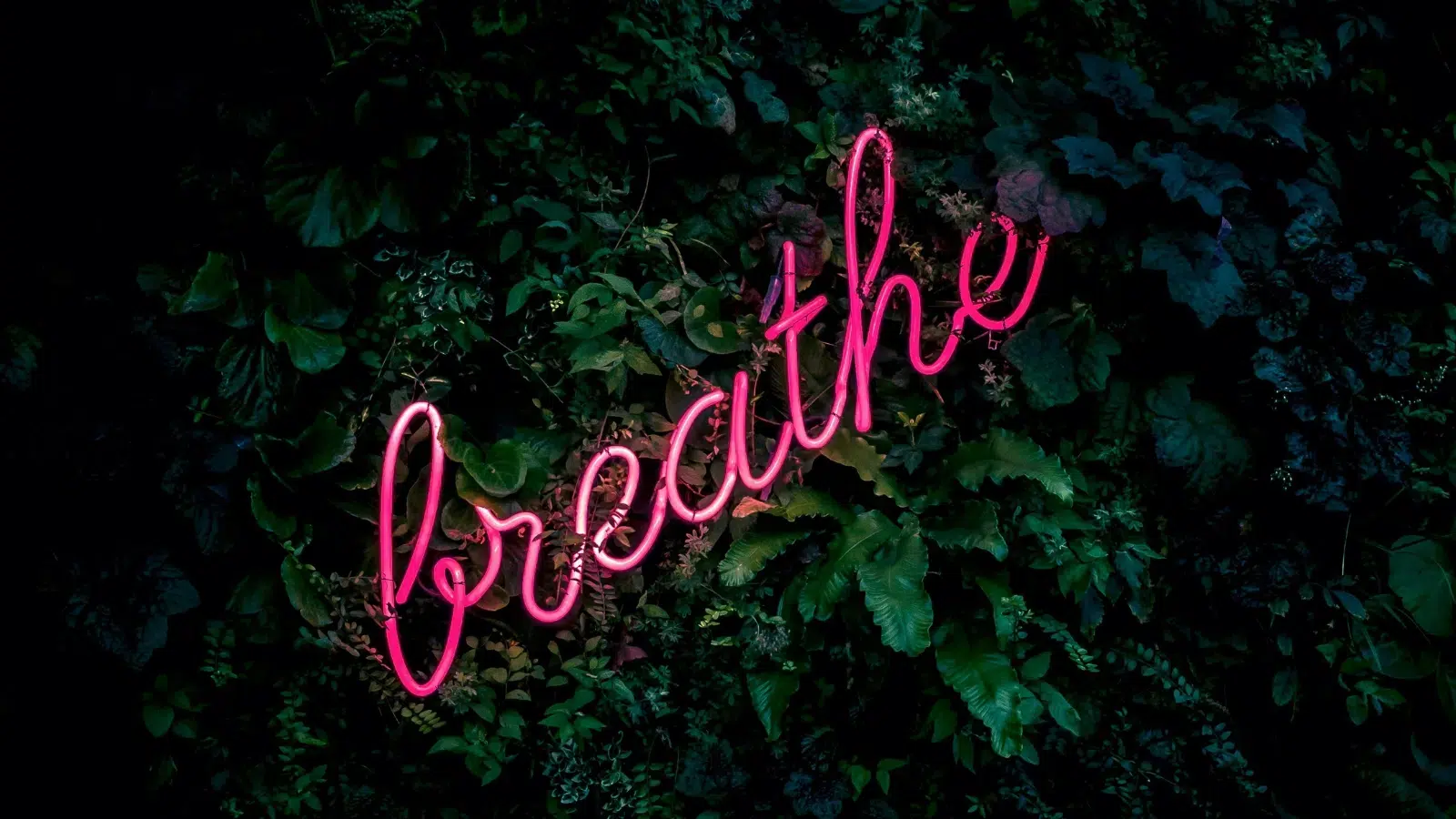Much of Western ethics, religious and secular, seems to rely on the concept of "free will," the principle that each of us is free to choose — in both mundane and morally significant contexts — and thus bears responsibility for whatever choice we make. Choose to indulge your urge to steal, and you bear both moral and legal responsibility for the consequences of that action (particularly if you get caught). And so on.
All this amateur philosophizing endures notwithstanding the withering attack on free will by scores of philosophers, neuroscientists, and biologists. John Locke and David Hume called it nonsensical. Schopenhauer, whose philosophical work is largely about the question of will, noted it is only an a priori perception, not an actual description of events. As Hobbes noted, free will has only apparent reality; in Nietzschean terms, it has conventional truth only; in terms of absolute truth, it is incoherent. In Spinoza's words (Ethics III:p2s), "men believe themselves to be free, because they are conscious of their own actions and are ignorant of the causes by which they are determined." Obviously, if we knew all of the numerous causes of our actions, we would understand free will to be a delusion.
Likewise in the scientific community, which long ago rejected the Cartesian dualism of a somehow immaterial soul interacting with a material brain, and its pseudo-materialistic equivalent, which posits an ego sitting inside the brain (somewhere undetectable by neuroscience) and watching the percepts of consciousness go by like a movie. The phenomenon we call the "mind" is, as Gary Marcus described, a kind of "kluge," a contraption cobbled together from parts meant for something else. Consciousness — in particular our consciousness of "self" or ego — is made up of thousands of memes, culturally written software that runs on the hardware of the brain. Scientifically, there just isn't a self, a humunculus hunched inside the brain. (On all this, see Daniel Dennett, Consciousness Explained, pp. 109-15, 253-54; and Freedom Evolves, pp. 304-05).
Ultimately, "free will" is a convention. It is useful solely for describing our perception of, and responsibility for, decisions. As a phenomenon of consciousness, it evolved over time, and it in turn has helped human beings and human culture evolve. In the classic compatibilist perspective, it is coherent as a mental phenomenon, even if it makes no sense absolutely — and yet since its only function is as a description of a mental phenomenon, no more is required. Ontologically, it has no meaning, because ultimately, everything is caused from without. But morally, ethically, it still means a great deal, because what is "ultimate" does not really matter ethically. It is only important that the proximate causes of one's decisions can be traced to what Dennett calls "recent past… not to infinity, but far enough back to give my self enough spread in space and time so that there is a me for my decisions to be up to." (Freedom Evolves, p. 136)
This is sufficient, ethically speaking. It allows for non-existence of the self, the total determinism of all phenomena, and yet ethical responsibility for one's actions. And yet the unreflective notion that we actually somehow have free will, really, as a matter of ontology, persists. And it justifies an egotism which resolutely opposes every effort to liberate the self from the ego. It is the last gasp of the unenlightened mind.
This is our point: that when "free will" as an ontological proposition is dismissed, realization arises without any negative consequences for ethical responsibility.
Consider: the meaning of "free will" is essentially that there exists an action without any external causes, solely determined by an independent moral agent who, while of course affected by the world, ultimately operates independent of it. The question of whether it exists is thus essentially a subset of the classic philosophical distinction between determinism and indeterminism. Normally, of course, most of us live our lives according to determinism. We expect that when we are ill, there is a cause (material or otherwise) of the illness; that when we see cars, they likely have drivers (and engines); that rain does not materialize out of nothing in the sky. All phenomena have causes; they do not blip in and out of existence on their own (bogus adaptations of quantum mechanics notwithstanding).
Yet most of us live our ethical lives according to indeterminism. We assume that we make choices, and that those choices are "ours," that is, not wholly caused by other things. The buck stops here. At this moment, you could continue reading, or click to another web page — and of course it seems that the choice is yours. Seems, but not is. Setting aside neuroscience for a moment, it does not even comport with what is directly observed in meditation. Every mental decision is wholly caused by the sum total of causes and conditions which have brought you to the moment of choice. Where else would it come from? Some of these causes may be proximate — how interesting this essay is, how restless you are, what you have to do in five minutes — and others may be quite distant: how you respond to philosophy; your gender, race, and class; and so on. It is beyond our ken to identify all these different causes and conditions, but surely they exist. Yet even if a choice seems totally impulsive, even random, it is caused by something, is it not? And whatever that something is — or rather, whatever the uncountable myriad of somethings are — already exists as the product of other causes and conditions.
This fact is observable through meditation, which is as close to the scientific method as the introspective mind can get. It's simply clear, empirically, that decisions are phenomena caused by other phenomena. If you want to repeat the experiment, get trained, sit down, and follow the same process, of slowing down the rapid-fire of thought to an extent that the mechanism of causation and choice can be seen more clearly. You will see how involuntary actions which ordinarily pass unnoticed are seen as intricately detailed sequences of desire and repulsion; how just brushing away a mosquito can seem like a choreographed ballet. Whereas normally it seems like "I make a decision," in clear enough meditative states, it's possible to actually observe how the different actions and reactions which usually get labeled as "the self" are evoked when the right conditions are present, how habituated responses dictate action, and how even in instances of choice, the thought processes one goes through are caused by personality, environment, and the rest. Observed — not merely felt. The smooth clockwork of discursive thought is deliberately interrupted in such contexts, and its mechanistic nature can be observed. There is no self driving the gears — the self is the gears. It's an emergent phenomenon of the uncountable causes and conditions that are happening all the time. This is what can be observed empirically, on the phenomenal level of the mind.
Of course, it is possible that some weird, non-material, non-provable, non-disprovable, non-observable self is actually calling the shots, but the principle known as "Ockham's Razor" suggests that the simplest solution tends to be the best one — not least because, after three hundred years, no one has been able to show how material and non-material forms interact. (Famously, Descartes himself suggested that there is a nexus between the material and the non-material in the pineal gland of the brain. Given what we now know about the pineal gland and its role in consciousness, that Descartes chose it is quite remarkable, even prescient. But even electricity and the various energies of the brain are still material.) And no, quantum theory — that perhaps the soul is able to pop gluons and mesons into existence, and from there, somehow, an independent consciousness influences the material brain — doesn't work either. As minute as neurons are, they are gargantuan in size compared to subatomic particles blinking in and out of existence, and every thought we have is really a phenomenon caused by many neural connections, in different parts of the brain. Suggesting that quantum flux influences the brain is like saying that an ant crawling across my floor suddenly built my home. All this quantum nonsense actually exists to justify an intuitional sense of the world which is flatly contradictory, directly disprovable, scientifically disowned, and is only around at all because it seems to feel good. (On this point, Ken Wilber's Quantum Questions is a terrific anthology of the 20th century masters of quantum theory all lining up to say that, while it is remarkable, mystical, and amazing, it has nothing whatsoever to do with "thoughts creating reality" or free will or anything like What the Bleep suggests.)
But notice what this pseudo-metaphysical explanation is attempting to provide: a way out of materiality and causality, and a ground for ethics. But our ethical selves would not disappear without metaphysics; most people don't care about metaphysics anyway. What's more, from a nondual perspective, deterministic causality is really our best friend, because it is the release from the prison of self, the last barrier to realization.
From the relative perspective, materialism is the simplest, most logical account of the phenomena of mental processes, including the sense of free will. Our brains, as well as our minds, obey the basic laws of cause and effect. Somewhere, deep within the recesses of the brain, there are memories and learned behaviors, memes and cultural artifacts, that are then combined, in the fraction of a moment, to form decisions. Free will is part of what cultural critics call "the myth of the given": the mistake of thinking that what we are is somehow "natural" or given, apart from cultural and linguistic factors. Of course, the way these factors are combined will be different for each person, thus giving rise to personalities and creativity; the materialistic view certainly does not deny the wondrous powers of the human mind to innovate, invent, and create new "combinations" that have never existed in the world before. Indeed, as Dennett writes (Freedom Evolves, p. 185) our sense of agency is part of "what nature intended," just as much as our instincts are. We really are in the image of God. But not because we somehow stand outside the material universe.
From the absolute perspective, the world arises as like a dream — but within the terms of that dream, there is only the appearance of self, not a reality of it. What we take to be the "self," a soul gazing out at the world but ultimately free from its influence, is but a mirage. Of course, we have "selves" in that my mind is not your mind, and my body is not your body. But our minds and bodies are wholly conditioned by other things: from genetics and how we were raised right down to how hungry we are right now. As I ponder the next words to write, thirty seven years of experience and thousands of years of genetic engineering are determining the choices that I make. "Free will" has nothing to do with it.
Rather, the "I" is a temporary ripple on a pond of causes and conditions. It is like a motion picture, an illusion of seamless movement caused by the rapid-fire succession of still images. Or, to use Buddhist teacher Joseph Goldstein's metaphor, this phenomenon of the "I" is like the Big Dipper: it's there if you look at things a certain way, and not there if you look at them a different way. Of course, there's no Big Dipper really; but equally "really," that is, from our ordinary, conventional way of looking at things, there is.
Likewise, as a lived, perceptual phenomenon — a phenomenon, not more — obviously free will exists. This is the point of comptabilism: that free will describes a phenomenon of our experience, but nothing more than that. And that is sufficient for all the ethical and jurisprudential consequences of free will to fall into place.
This is why Rabbi Akiva's statement in the Talmud that "everything is foreseen; yet free will is given" is not some Zen-like paradox. It's describing just how things are. In actual reality, everything is "foreseen," if by "foreseen" we mean by an omniscient God who, unlike us but like Laplace's demon, can actually know the billions of causes and conditions influencing each of us at every moment. In the Buddha's words, "there is free action, there is retribution, but I see no agent that passes out from one set of momentary elements into another one, except the those elements [themselves]."
Some believe that without free will, we are mere biological instruments, with no spark of the Divine — or, in semi-secular terms, no human soul. But from a nondual perspective, this argument is theologically backward. If only we were able to release the need to see ourselves as separate from the rest of the cosmos! The autonomous soul isn't the gateway to God; it's the gateway to delusion. This is precisely what the Jewish sages call the yetzer hara, the selfish, separating and, occasionally, evil inclination that sees the self as the center of the universe. Whereas, when I'm able to see, just a little bit, that my choices and feelings are the results not of my autonomous "free will" but of a vast Indra's net of causes and conditions, the overwhelming majority of which I cannot know — not only a sense of perspective, but also a sense of peace, can arise. It is what it is, and it will be what it will be — ehyeh asher ehyeh in the Hebrew — and my choice is simply what to do about it.
This kind of letting go is not a detachment from the imperative of justice, but a revitalization of it. Which perspective is more likely to lead to pursuing justice, one centered on my self and my needs, or one which sees the arising of 'my needs' as just one more strand within a web of causes and conditions — a web often given the name of God? Personally, I'm a lot less selfish when I'm not self-centered; it seems like a tautology, really. Nondual action is the same as dualistic action, except without a selfish motive, the notion of a "doer," or the resentments and hindrances that inevitably accompany self-involved activism.
Of course, too much equanimity can lead to a kind of ethical laziness. But if we're really serious about looking closely at the mind, then lot of what passes for equanimity and balance — not to mention "realism" — is actually selfishness in disguise. Detaching from the delusion of free will isn't detaching from the world; it's attaching oneself to it, and that makes ignoring its suffering in the name of domestic tranquility all the more difficult.
Nor is this erasure of the self an erasure of individuality. Letting go of the delusion of free will doesn't mean that, beforehand, I'm a creative, idiosyncratic, sensual person and afterwards I'm a null set. Everything still arises; it's just seen for what It is, rather than what it isn't. This is why some of the most enlightened teachers around today are still very much Brooklyn Jews, or British contrarians, or whatever their histories have shaped them into being. They may not even seem nice at first, and I'm sure that sadness and anger still arise. Only the phonies are always smiling.
Free will is an illusion of the well-functioning brain, a trick of the mind, and oftentimes the joke's on you. Let go of it; you've got nothing to lose, and Nothing to gain. And there's a big difference between nothing and Nothing, even though I can't quite tell you what it is.
One Last Miracle
This should be the end of the inquiry: that letting go of the delusion of separate self helps one see the relative world more clearly and surrender into the absolute. But if we are speaking of ethics, there is one peculiar miracle left.
It is a simple one: that compassion is natural after all. That the surrender into Being, into God, does make us kinder, even without the heteronomies of law. When we quiet down — just silence, just stillness — and see things as they are, compassion, lovingkindness, and wisdom appear on their own, without any oughts from us. When you really get to who you are, underneath all the neurosis, alongside the deep wounds from childhood, you find yourself to be a compassionate person who, just like all the rest of us, simply wants to love and be loved, and to live life right.
At least, that's what I've found. And it's what, in near-unanimity, generations of other contemplatives have also found. We're not finding "goodness" in any particular ethical or moral sense. I love the stories of Ikkyu, the enlightened Zen monk who, after his enlightenment, would carouse with prostitutes and get drunk. That's what he found, and he exasperated the more traditional authorities who had a set idea of what an enlightened person is supposed to look like. In reality, an enlightened person doesn't look like anything in particular. Like the much-overtold story of Zusya of Hanipol, the sage looks not like Moses or Jesus, but like Zusya. Like her true self.
But we do find a natural goodness, that wants to help, that no longer needs to defend the boundaries of self. It takes work, but the good heart does emerge.
It is also, sweetness notwithstanding, a radically different view of the path of justice from the view that we must repress your deep, dark instincts, because they are evil, or corrupted by Original Sin. The view I am articulating is: get in touch with your deep, supposedly-dark instincts, and bring them all to Light. It is also somewhat dangerous: on a societal level, we obviously need moral laws, rules, and the rest. It is not reasonable to expect everybody to go off on extended retreats and get to know their true natures. Doing so is a privilege, conditioned by economic ability, as well as by the way our lives have happened to play out. (Many people call that 'karma.') Tragically — and let's not underestimate the nature of that tragedy — contemplative practice is not available to everyone. And, obviously, most people don't desire it either. So all the usual ethical rules and regulations remain in place, and in debate.
But when it can happen, the contemplative practice of seeing clearly — not superimposing moral thinking atop a rotten foundation, but just seeing what is — leads to more justice and more peace. Simply by seeing clearly who or what we are, we become more gentle, more compassionate. Automatically, as it were. The sense of the sacred arises naturally as well. We are radically good at heart — some might say, we are God at heart.
I can't convey to you how transformative it was for me to see not merely that "all people are good at heart," as Anne Frank said, but that I am in particular. Me! The clumsy, fumbling, needy me — the ironic, cynical me — underneath, or rather alongside, all those pieces and strategies is really a very simple loving person who is — gasp — good at heart. This can be a very embarrassing thing to realize, let alone express. But it's embarrassing because we suppose that the real Anne Frank is the Hallmark Anne Frank — i.e., that knowing people to be good at heart leads to mushy thinking, or Polly-Anna optimism. But that's not true at all. Knowing that I am good at heart does not cloud my judgment about when I'm too clever, inconsiderate, or "spiritual" — it clarifies it. It does not bring about arrogance; it engenders humility.
Anne Frank was not naive. But imagine her knowing, even as she was victimized and brutalized beyond our capacity to conceive, that what was happening was not the evil essence of humanity, but a mistake. Imagine a surrender not to despair, but to the unfolding of Being itself. Imagine the slightest loving smile, held even amidst tears.
Image by uBookworm, courtesy of Creative Commons license.









